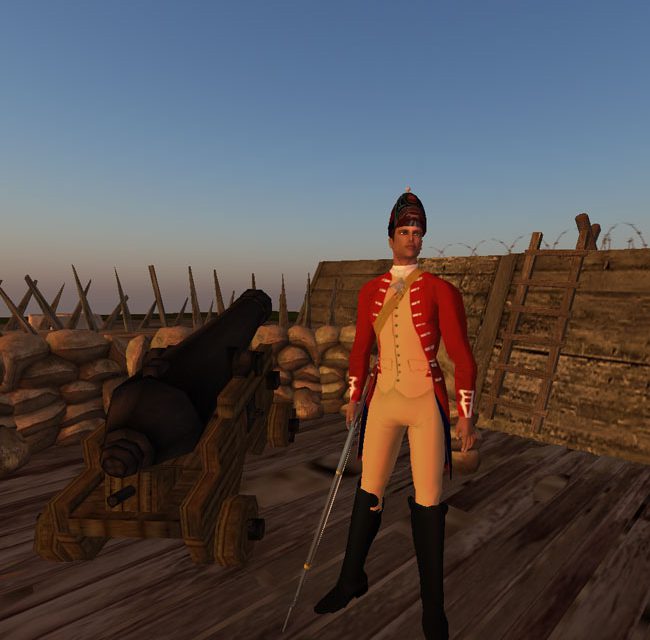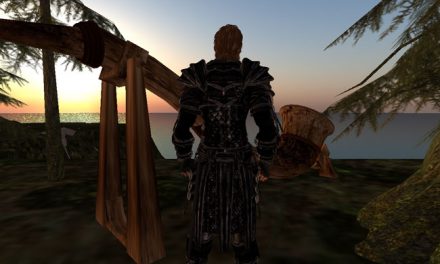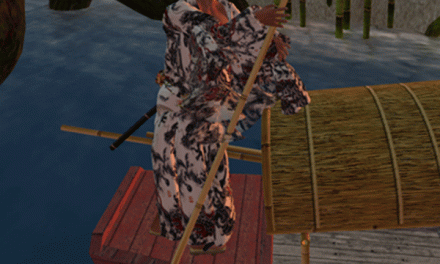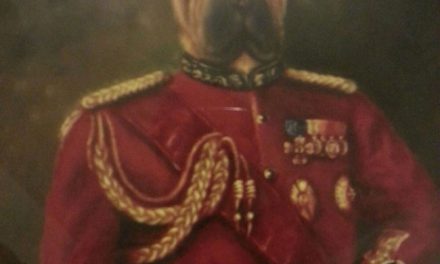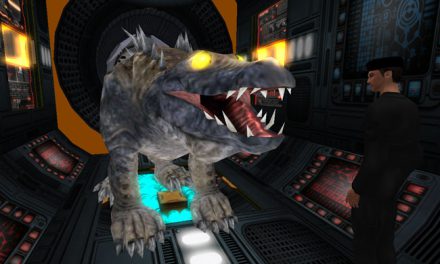 A Fair Bet
A Fair Bet
Historical Fiction
By
Harold R. Thompson
The latest bet was whether Ensign Aldridge, No. 4 Company Royal Hampshire Fusiliers, could strike three targets in a row with his Colt revolver at fifteen paces. Lieutenant Henry, also of No. 4 Company, accepted. The stakes were a bottle of champagne, which could be purchased in the adjacent French camp.
“Three targets in three shots?” Henry said.
“Three targets, three shots!” Aldridge agreed.
“What if a cap misfires?”
The Colt percussion caps were notorious for failing.
“A misfire is a miss,” Aldridge said. “Three targets, three shots.”
The targets were three empty wine bottles, arrayed on a plank suspended between two biscuit kegs. Henry measured fifteen paces, drew a line in the earth with the heel of his boot, then moved to stand with Major Willis and the half dozen other officers who had gathered to witness the sport. They made a small parcel of scarlet jackets and blue frock coats, a few with smoldering cigars clamped between their fingers, their eyes fixed on Aldridge, who was defending his fifth bet this week.
Aldridge took his position on Henry’s line, the Colt held loosely in his right hand, his bright youthful face aglow with confidence. Eager to prove his mettle, Henry decided, though the effort seemed honest. Aldridge was a new officer, a mere lad of seventeen years, one of the reinforcements sent from England to make up for casualties. He was bright and cheerful and had already gained some popularity with the other subalterns, even those who had served since the start of the war with Russia. Henry had grown fond of him, and had volunteered to be his ward, to teach him the ways and traditions of the regiment.
Aldridge raised the revolver and sighted along the barrel. There was an expectant hush from the spectators. Henry could smell the tobacco smoke. In the distance, artillery rumbled. The siege of Sevastopol continued, as it had for so many months. Almost a year, he realized, since the British and French expeditionary forces had landed here in the Crimea, intent on capturing the naval port of Sevastopol, and so thwarting the Russian invasion of Turkey. Almost a year, and the port still stood, though the final assault on its forts was scheduled to take place within days.
Aldridge fired, and Henry started, the crack of the revolver dispersing his thoughts. The first bottle shattered.
“There’s one!” Major Willis cried.
Aldridge thumbed back the hammer, sighted, and fired again. The second battle shattered. A collective shout went up from the assemblage.
Willis turned to Henry and declared, “Now for the moment of truth, my dear fellow.”
Aldridge again cocked the revolver and shifted his aim. With the thumb of his left hand, he adjusted the percussion cap, which had come loose and hung askew. Henry thought about objecting to this, but they had made no provision against it, so he kept silent.
Aldridge squeezed the trigger a third time. There was a snap, but nothing else. The percussion cap had misfired.
There was a groan from the spectators. Willis sighed and shook his head. “Hard luck, to lose on account of a bad cap.”
Aldridge turned to Henry, the smoking revolver now dangling at his side. The lad shrugged, a thin smile on his lips.
“I concede defeat, sir. Three targets in three shots was the agreement.”
Henry advanced and shook Aldridge’s hand. He had not expected to win the bet.
“On skill you would have won, had fate not intervened!”
“Fate guides a soldier’s life, so how can I argue? She’s granted me good luck on more than one occasion.”
“That’s the spirit,” Henry said. Aldridge had been making bets since his arrival, and lost as many as he won. He never complained about the former, but his family was wealthy, and Henry supposed that he could afford it. Money was no object, and he seemed to relish the sport.
“Record it in the regimental Betting Book,” said Major Willis. “The thirtieth of August, eighteen-hundred and fifty-five. Ensign Aldridge bets one bottle of champagne, payable to Lieutenant Henry, that he can hit three targets with three successive rounds from his Colt revolver. Bet goes to Lieutenant Henry.”
#
To aid him in his duties as ward, Henry had agreed to share quarters with Aldridge. The Light Division had obtained several of the wooden prefabricated huts that had begun landing in Balaclava Harbour, the British supply base, and Henry had convinced the regimental quartermaster to give him one. The hut was a vast improvement over the simple bell tent he had huddled in last winter, that horrible winter that no one who survived would ever forget, with the starving horses eating each other’s tails, the men freezing to death in the trenches for want of everything from new coats and shoes to nails and candles.
Aldridge was ignorant of that suffering, but Henry would never have wished it upon him.
“I simply adore this officer’s life,” the young ensign said as he brushed his coat. The coat was new, of scarlet doeskin wool, the bullion epaulettes still untarnished, the lace trim still gold instead of the shabby faded brown that marked the veterans. “I find I look forward to dinner in our mess hut more than anything, the good cheer and fellowship. I have never known anything like it.”
“You’ll prefer it when the war is over,” Henry said, “and we return to a proper mess, not just us gathering in one of these rude huts.”
Aldridge examined his coat in the light of their one lantern. “Do you think the war will end soon?”
“I daresay the coming assault will be the last. We’ve been waiting in our trenches these many months, and the Russians waiting in theirs, but I think we have got the better of it. We’ve worn them down, and advanced our works to their doorstep. You’ve seen the prisoners we take – they’re starving! They will give in, when we strike next. I have no doubt.”
Aldridge sighed. “I am sorry I missed the early battles, the fight at the Alma, and Inkerman. And to think I missed them by scant months.”
Henry slumped in his folding camp stool, a sudden and heavy weariness settling over his shoulders.
“I was of the same mind, when I joined. Sorry that I’d missed all the action, that is. The regiment had just come from the Second Sikh War, and all the others were full of tales of their exploits. It all sounded like jolly good fun and I was disappointed, but now I wonder if they were just trying to make the best of things. Several of our boys had fallen, several grievously wounded… I think now I was better off, as I think you are for having come late.”
Aldridge plucked a bit of stray lint from his coat.
“I joined to fight,” he said. “Don’t we all?”
Henry shrugged and stroked the short beard he had allowed to grow.
“I suppose,” he said, and sighed.
Where did it come from, he wondered, this weariness that sometimes overtook him? It was not a sadness or despair, but simple fatigue. The war, with all of its blunders and missed opportunities, had worn the sparkle and sheen from all that he had once loved about the army.
He looked at Aldridge and felt a twinge of remorse. He did not want to infect the lad with his doubts. To Aldridge, the army still shone, and the war was still nothing but fun and games to him, and comradeship, wine in the mess, and placing bets on feats of skill.
Henry pulled himself from his stool and moved to Aldridge’s side.
“Stay near me during the coming assault, Ensign,” he said.
Aldridge gave him a puzzled look, but he nodded.
“I will, sir.”
#
The regiment paraded at dawn on the morning of September 8. The air was crisp, with a hint of the coming Russian winter. Henry stood in his place behind his company and noted the patchwork appearance of the men. Here and there was a veteran soldier, his red coat faded to pink, his face masked in a thick thatch of beard, his forage cap tilted at a jaunty angle, but over half of the troops were recruits, fresh from depot, semi-trained, their coats clean and new, the bluing on the barrels of their Enfield rifles as smooth and fresh as their faces. Men like Ensign Aldridge, who had never seen a shot fired in anger.
The assault companies, Henry realized, were filled with these new men.
At nine o’clock, the regiment marched from the Light Division camp, joining the other moving columns as they filed into the trenches. The artillery was already firing, more than a hundred heavy guns and siege mortars shattering the peace of morning.
The Royal Hampshire Fusiliers made its slow way along a series of approaches, moving between walls of gabions, fascines, and stacked sandbags, at last reaching its designated assault trench, a long parallel facing the enemy works. Other regiments waited nearby, and the Sappers and Miners with their picks and spades, a few companies from the Rifle Brigade in their green tunics, other battalions from the Light Division, all crowding the long parallel and the closest approaches.
Henry’s men rested as the artillery thundered, some dozing, a few playing cards or chatting in low voices. Henry stood apart and peered over the sandbags that formed the forward parapet of the trench, looking across the blasted no man’s land toward the Russian lines that ringed Sevastopol. Two hundred yards away lay the Redan, one of the key enemy forts, an enormous salient of earth with a protective ditch and abatis of sharpened stakes. Far to its right, opposite the French lines, lay another key fort, the remains of a stone tower known as the Malakov.
The French and British had attempted to take both forts before, in the spring. They had failed. Since then they had worn the Russians down, or such was the thinking of the Allied commanders. The second assault was sure to succeed. But Henry knew it would be bloody.
He sensed a presence at his elbow, and turned to see that it was Aldridge. The boy had his peaked forage cap pulled down low.
“How are you holding up?” Henry asked, almost shouting over the roar of a fresh salvo of artillery.
Aldridge gave him on of his expansive smiles. The tension of this waiting under the guns, difficult to endure even for a veteran, must have been taking a toll on his nerves, but it did not show. Perhaps, Henry decided, he was truly not afraid? Might he even be enjoying this?
The young officer held out his right hand.
“Would you care to make a wager, sir?”
Henry hesitated. This was neither the time nor the place, he wanted to say, but at once changed his mind. Perhaps a wager would be a welcome distraction.
“On what, Mister Aldridge?”
“Who shall make the enemy parapet first? I say that it shall be me, sir.”
Henry was wearing whitened kid gloves, and he peeled the one from his right hand.
“You forget that I shall be right beside you,” he said.
“A few inches or a foot may make a difference, sir.”
“Indeed it may. Indeed it may. Then I’ll take your bet. I’ll be first, not you. What do you say – we lay a bottle of port on it?”
“Port it is!”
Henry clasped Aldridge’s hand, and they shook. Henry noticed that Aldridge’s palm was slick, and when the young officer turned to lean back against the wall of the trench, a bead of sweat ran down from his cap and across his cheek.
Perhaps he was afraid after all, and was simply demonstrating profound courage.
“Just remember your duty,” Henry said to him. “You cannot go wrong.”
Aldridge nodded.
“Thank you, sir.”
After what seemed an age, the guns fell silent. Batches of powder smoke, bringing their heady stench of sulfur, still drifted away to the west, toward the objective. Henry snapped open his watch; saw that it was exactly noon. The men in the trench were already on their feet, standing with bayonets fixed. They were all gazing upward, toward the parapet in expectation, knuckles white on the stocks of their long Enfield rifles.
Henry drew his sabre and sloped it on his shoulder, then pulled his five-chambered Adams revolver from its holster. Aldridge followed his example, drawing his sword and his Colt.
Within minutes, a distant cheer rose from far on the right.
“The French have taken the Malakov!” Henry heard Major Willis declare. “The tricolor is flying from its parapet!”
“Wait for the signal,” Henry said to the nearest men, but it was too late. The strain of waiting had been too great, and the advance parties, the Sappers and Rifles, were already climbing from the trench and racing toward the Redan. The ladder parties, groups of eight men bearing long ladders to help scale the enemy ditch, followed them.
“Wait!” Aldridge was also shouting, but now the Fusiliers were pulling themselves out of the trench, the green men eager to see an end to their fear.
“There’s nothing for it,” Henry declared, and he pointed his sword. “Forward!”
He found footholds in the gabions and sandbags, and then he was out of the trench and stumbling, almost losing his cap, regaining his balance and running, trying to overtake the wave of men that rushed forward. High above he saw the agreed signal at last, two rockets fired from one of the batteries. Two hundred yards of blasted ground lay between him and the Redan, which looked like nothing more than a brown hill of earth, bristling with the dark muzzles of cannon.
Suddenly the face of the Redan erupted in smoke, billowing outward. The Russian guns had opened. Henry saw Rifles and Sappers engulfed in smoke and flame. One of the ladder parties took a direct hit, their ladder splintering into fragments that spun in the air.
Aldridge began shouting a wordless cry, and sprinted forward. Henry struggled to keep up, cursing the ensign’s youth and strength. Despite the danger, despite the battle raging around him, he remembered his honour as an officer. He could not allow Aldridge to outstrip him!
He ran faster, his sword above his head. The company was at the abatis of stakes. The stakes were still intact, though the British artillery had hoped to destroy them.
“Tear it away!” Aldridge was shouting, and he began pulling stakes out by their roots and wading toward the ditch.
The Russian guns were belching flame, cutting swaths on either side, but Henry’s company was approaching the salient angle where no cannon could bear. Henry urged the men on, and now he was climbing down into the defensive ditch. It was filled with rubble from the British bombardment, and the slope was not steep. There was no need of the ladders after all.
The surviving Rifles had already reached the enemy parapet, and they stood there, firing down into the fort. One more gun fired, then the enemy artillery fell silent. The air was filled with the shouting of the men, the crack of rifles. Henry’s breath was a rush in his ears. Aldridge was ten paces ahead of him, scrambling up the rubble-strewn slope of the Redan.
Aldridge had reached the parapet. There he stopped, turning with a wide grin, sword in one hand and Colt revolver in the other. Wisps of powder smoke drifted past him as the sun glinted from his gold buttons, his epaulettes.
Henry saw the musket ball tear into Aldridge’s leg, saw the spray of blood and white fabric. Aldridge teetered for a few seconds, then fell, raising a small cloud of dust. His sword spun away, but he did not lose his grip on his revolver.
Henry struggled the last few yards and was at the ensign’s side. From here he could see down into the Redan, see that there were Russians, in their long brown coats despite the heat, milling about on the firing step. One was poised to thrust his bayonet into Aldridge’s side, a burly fellow with his forage cap shoved back to reveal a broad forehead. Henry aimed his Adams revolver and fired. The Russian fell backward.
Henry crouched over Aldridge. The ensign groaned and clutched at his streaming wound. There were British soldiers all along the parapet now, firing down into the Redan. Not charging into the fort, but halting and firing.
“I’m afraid I have to leave you,” Henry said. “I must urge these lads on.”
Aldridge nodded. His face was the colour of day old ash.
Henry stood. “Charge them!” he cried.
Something hard and sharp struck him on the side of the head. He felt himself sink to his knees, but nothing else.
#
“A bullet creased your skull,” a voice explained, a musical voice. “But you will be all right. The wound is small and will mend.”
Though his eyes were open, the piercing pain made it difficult to focus. He was lying on a cot in one of the prefabricated huts. There were other cots on either side of him, and hanging lamps overhead. This was the hospital on the headland above Balaclava, a few miles from the front line. It was night, for the lamps were lit. How many hours had passed?
He turned to the one who had spoken, one of the women who had come to the Crimea with Miss Nightingale to serve as nurses.
“The assault,” he said. “How did it fare?”
The young woman’s plain features betrayed no emotion. “The assault did not fare well, but the generals say there are signs that the Russians are evacuating.”
“Evacuating,” Henry repeated. Was this a victory?
He looked at the figure in the cot beside him. It was Aldridge. The young ensign lay with his eyes closed. A doctor was sitting on a stool next to his cot, examining the wounded leg. Dark blood had soaked the sheets.
“Aldridge!” Henry hissed. “Aldridge!”
“Do not tax him, Lieutenant,” the doctor warned, but Aldridge’s eyes opened, and his head slowly turned in Henry’s direction.
“Sir,” Aldridge said, and a weak smile twisted his bluish lips. “They must have come and fetched us away.”
“Yes, the bandsmen brought us here. How is your leg?”
The doctor stood. “I’m afraid it is not salvageable. The ball shattered the bone. It will have to come off.”
Aldridge squeezed his eyes shut, then opened them again. “My leg will come off?”
“It is the only option, Ensign,” the doctor stated, and he attempted a smile, though it did not reach his rimmed eyes. “You can tell your children that you lost it at Sevastopol.”
There was a sparkle in Aldridge’s eyes. “So I am to lose my leg.”
“The operation will have to commence at once. I’ll return in a few minutes, with some orderlies to take you to the surgery. It is in the next hut.”
When the doctor had gone, all Henry could think to say was, “Hard luck, my boy. Hard luck. You shall have to walk on a peg with a stick.”
“An officer with one leg may still serve in some capacity,” Aldridge said with a note of desperation. “Can he not, sir?”
Henry was eager to reassure him, to help soften the blow. “Indeed, our Lord Raglan had one arm. You may be back in the mess in no time.”
“I hope so, sir. I hope so.”
The doctor returned in company with two orderlies, bandsmen in filthy white tunics. The orderlies set a canvas stretcher on the floor, then lifted Aldridge from his bed. The ensign groaned and gritted his teeth, but did not cry out.
“Here now,” the doctor said when Aldridge was safe on the stretcher, “it is not so bad. We have just heard reports that the Russians have blown up their stores and retreated to the north side of the harbour. Sevastopol has fallen, and you did your bit.”
“Sevastopol has fallen?” Henry said, raising himself on his elbows.
“Indeed,” said the doctor. “Your friend has not made his sacrifice in vain.”
An excited chatter broke out in the hut as the orderlies hoisted the stretcher. Before they could take a step, Aldridge called out, “That’s a bottle of fine port you owe me, sir!”
For a moment Henry did not comprehend, then he remembered the bet. Aldridge had reached the enemy parapet first.
“Yes,” he said. “A bottle of fine port!”
The doctor held the little door as the orderlies carried Aldridge from the hut. Henry watched them go, ignoring the conversation around him. Then he lay back and closed his eyes. The pain in his skull throbbed and burned.
“A bottle of fine port,” he whispered. Another one for the Betting Book. A fair bet fairly won.
In addition to writing short fiction in the science fiction, fantasy and horror genres, Harold R. Thompson is the author of the “Empire and Honor” series of historical adventure novels, which include Dudley’s Fusiliers, Guns of Sevastopol and Sword of the Mogul. His latest novel, The End of the Tether, was just released. He lives in Nova Scotia and, when not writing or spending time with his family, works for Parks Canada.
